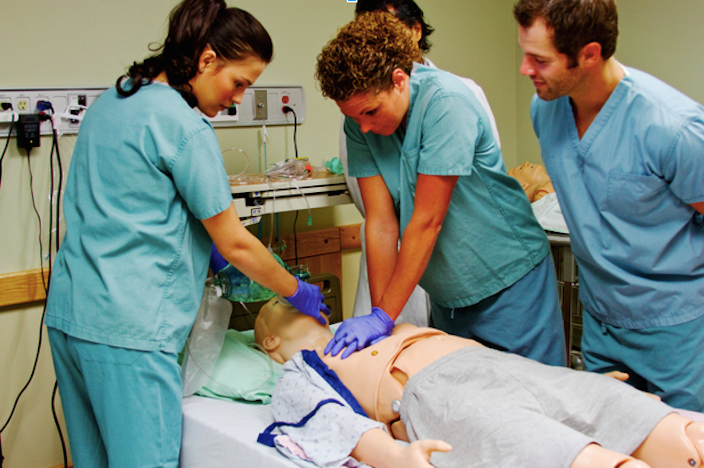Advanced Cardiovascular Life Support (ACLS) is more than memorizing algorithms—it’s about mastering life-saving skills that work under pressure. Whether you’re a nurse, paramedic, or physician, excelling in ACLS requires more than just technical know-how. It demands confidence, teamwork, and calm decision-making in high-stress situations.
Here are the top skills every ACLS provider must master to be effective during a code:
1. High-Quality CPR
High-quality cardiopulmonary resuscitation (CPR) is the foundation of ACLS. Compressions must be:
- At least 2 inches deep
- At a rate of 100–120 compressions per minute
- With full chest recoil
- Minimal interruptions
Mastering your CPR technique ensures oxygen delivery while other interventions take place.
2. Airway Management
Knowing how to open, maintain, and secure an airway is crucial. ACLS providers should be proficient in:
- Bag-valve-mask (BVM) ventilation
- Oropharyngeal and nasopharyngeal airways
- Assisting with intubation or supraglottic airway devices
This skill is especially vital when working with limited staff or in pre-intubation phases.
3. Cardiac Rhythm Recognition
Understanding and identifying cardiac rhythms—especially shockable vs. non-shockable—is key to determining next steps. Providers must be confident in spotting:
- VFib / Pulseless VTach
- Asystole
- PEA
- Bradyarrhythmias and tachyarrhythmias
This skill allows you to act quickly and correctly within the algorithm.
4. Pharmacology Knowledge
ACLS medications can save lives—but only when used correctly. Providers should be familiar with:
- When and how to give epinephrine, amiodarone, atropine, adenosine, etc.
- Proper dosages and timing
- Potential side effects and contraindications
Knowing drug protocols inside and out improves response time and safety.
5. Effective Team Communication
No ACLS provider works alone. Successful codes depend on closed-loop communication, clear role assignments, and verbalizing decisions. You must:
- Speak clearly and confidently
- Use names and confirm orders
- Know when to lead and when to follow
Great communication reduces errors and increases efficiency during critical moments.
6. Critical Thinking Under Pressure
Algorithms are guides, not scripts. Providers must assess patient response and adjust interventions as needed. This means:
- Recognizing when a rhythm change occurs
- Questioning treatment effectiveness
- Switching strategies if something isn’t working
Staying calm and thinking critically under pressure separates good providers from great ones.
7. Debriefing and Learning from Each Code
Strong providers grow from experience. Participating in post-code debriefings helps improve skills, team performance, and future outcomes. Ask yourself:
- What went well?
- What could have gone better?
- What did I learn?
Reflecting after a code is how mastery truly develops.
Final Thoughts
Being ACLS-certified is one thing—being ACLS-competent is another. The skills above take practice, confidence, and teamwork. If you invest in mastering them, you’ll become the type of provider every team wants in the room when it counts the most.


